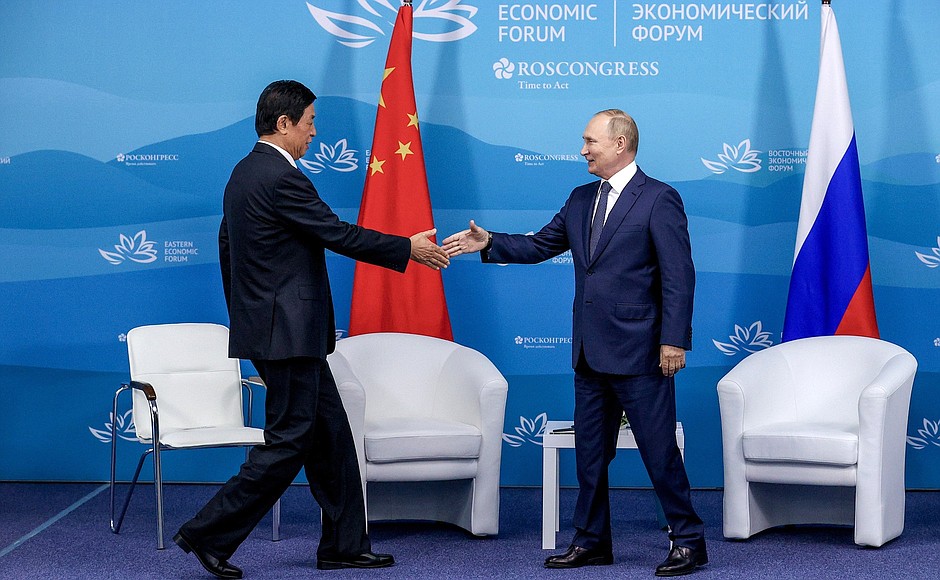The CIA Director says that China has learned from Russia’s invasion of Ukraine. The Xi Jinping administration says that the crisis in Ukraine was the result of hegemonism and expanding military alliances. President Xi calls for an international effort to reject hegemony by any one country. The Chinese president is using a business forum with the BRICS to promote his Global Security Initiative.
CIA director says China is learning from Russia’s invasion of Ukraine
According to CIA Director William Burns, China is learning from Russia‘s invasion of the Ukraine, which was a costly mistake. Beijing is likely now aware that it needs overwhelming force to win a decisive victory. It also has learned the importance of controlling information space and securing its domestic economy from the potential consequences of international sanctions.
According to the CIA director, China is closely studying Russia’s invasion of Ukraine and may be adjusting its long-term plans for Taiwan. China claims self-ruled Taiwan as part of its territory. Although it has not taken military action yet, it has not ruled out using force to take control of Taiwan.
Chinese Foreign Minister Wang Yi meets with Secretary-General of the Shanghai Cooperation Organization
Xi Jinping and U.S. Secretary of State Antony Blinken hold a telephone conversation. They discuss a recent ceasefire agreement between Russia and Ukraine and how it is important to respect the legitimate security concerns of all countries. President Biden also speaks on the phone to President Xi.
The two leaders also discussed the SCO’s role in maintaining regional stability and security. They emphasized the importance of mutual political trust and equality in the organization. In addition, they discussed the necessity of deepening the solidarity among member states and strengthening their mutual support. They also emphasized the importance of promoting the cooperation in diverse fields.
Xi Jinping says expanding military alliances led to crisis in Ukraine
Xi Jinping has warned against expanding military alliances. He made the comments on June 22, when he spoke at the BRICS business forum, which gathers leaders from Brazil, Russia, India, and South Africa. He also criticized the use of sanctions against Russia for its invasion of Ukraine, saying the sanctions were a “boomerang effect” and would harm his own interests. Interestingly, China has a close relationship with Russia and was one of the three countries that abstained from a United Nations resolution condemning Russia’s incursion into Ukraine.
Xi Jinping has made clear that China has no intention of provoking a military conflict in Ukraine. In fact, it is opposing Western-led sanctions on Russia, which it views as unworkable and unproductive. While Beijing has not condemned the Russian invasion of Ukraine, it has worked to maintain a relationship with Ukraine to counter Western-backed sanctions.
Xi claims Russia’s invasion was unprovoked
Ukraine seeks direct talks with China on its ongoing war with Russia. President Volodymyr Zelenskyy has appealed to Beijing to use its influence over Moscow to prevent Russia from provoking war with Ukraine. But China has been reluctant to do so. Zelenskyy has sought direct talks with Chinese President Xi Jinping since February.
Xi claims that Russia’s invasion of Ukraine was unprovocation. He is not alone in his doubts. President Biden has also briefed the European Council on his March 18 call with General Secretary Xi. Both leaders are concerned about the situation in Ukraine and say the conflict must be resolved quickly. But they have not reached an agreement on how to resolve the situation.
ICJ judge votes against provisional measures ordering Russia to suspend military operations in Ukraine
A majority of judges in the International Court of Justice (ICJ) voted against provisional measures ordering Russia to suspend military activities in Ukraine, which was a victory for Ukraine in the dispute. While the majority of judges found Ukraine’s claims plausible, the ICJ’s reasoning for this ruling isn’t clear. It’s possible that the Court lacked the precision it needs to make a decision on provisional measures.
A dissenting opinion by Judge Koh argued that the World Court lacks jurisdiction to issue provisional measures in the case, but he ruled against the provisional measures and rejected Russia’s claim that it lacked jurisdiction. The court also rejected Russia’s argument that the Genocide Convention allows unilateral use of force. It instead interpreted the Genocide Convention in a multilateral way. The court also found that Ukraine has the right to be free from military operations, and that this right is a legal one.

